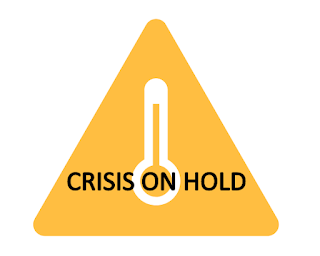3 thoughts to take forward from the Corona Crisis to the Climate Crisis
COVID-19 has changed our lives. And while there are some changes we all hope to reverse as soon as possible, there are a few thoughts and habits that I wish we would consciously take forward from this crisis.
1 Prevention is better than cure
When facing the unknown, it's wiser to err on the side of caution. Like the corona crisis, the climate crisis today is also unprecedented. Human societies have never faced CO2 levels like we see today -- and keep in mind that the levels are still rising. CO2 stays in the atmosphere for a very long time, and some of our emissions will still be around millennia later. The Earth is reaching tipping points, which means that we will start seeing dramatic changes that may be beyond our ability to manage. Rather than scrambling to find solutions tomorrow, it is far better that emissions be brought down today. Simply put, the sooner the world becomes carbon neutral, the closer we will be to solving the climate crisis.
2 Funding, not just "appreciation"
Frontline workers need more than applause. Appreciation does not make up for inadequate support in the form of funding, policy support and social structures. Like the corona crisis, climate solutions cannot be implemented on a reasonable scale without proper research, investment and policy support. Subsidizing renewable energy in place of fossil fuels, enhancing climate education and setting up adaptation programmes is crucial.
3 Crises are inherently unjust
Even the most fortunate among us were shaken by the complete upheaval of our lives. And then the plight of the poor and vulnerable was laid bare, with the terrible verdict -- a rich man's disease, a poor man's burden. The climate crisis is similar. Those who are causing it will not face the worst consequences. Those who face the worst consequences do not have the means to do so. This is true not just on the international scale, but on regional scales too. (I say this because just like blame, solutions should also be considered on both international and regional scales.) Policy, thus, must essentially keep this in consideration while designing solutions and aiding relief.
India
What lessons will India take from the corona crisis? Will we see more funding for the public healthcare system? Will we see programmes for raising awareness on local and regional scales -- hopefully, aided with more funding for education? Will we see science get back its stature, or will pseudo-science continue to sway the masses? Will we see a lasting change in people's lifestyles that includes making more informed and more responsible choices, including electoral choices?
And what lessons will India take to the climate crisis? Will we finally acknowledge coal as the worst carbon polluter? Will we see an end to coal subsidies? Will we start keeping the poorest and most vulnerable sections of society at the centre of our adaptation programmes? Will we see lasting changes in people's lifestyles that empower each of them individually in the climate crisis? Will we see our citizens keeping our leaders accountable for their role in mitigating the crisis? And will we see our leaders talk of the climate crisis with the gravity it deserves?
Only time will tell.
-----
Suggested reading:
- Why India must join industrialised nations in becoming net carbon neutral
- Can the covid-19 crisis help remake India's energy economy?
- Coal-fired power is losing 'unfair fight' in India to renewables
▬▬▬▬▬▬▬▬▬▬▬▬▬▬▬▬▬▬▬▬▬▬▬▬▬▬▬▬▬▬▬▬
For email subscriptions:




Comments
Post a Comment